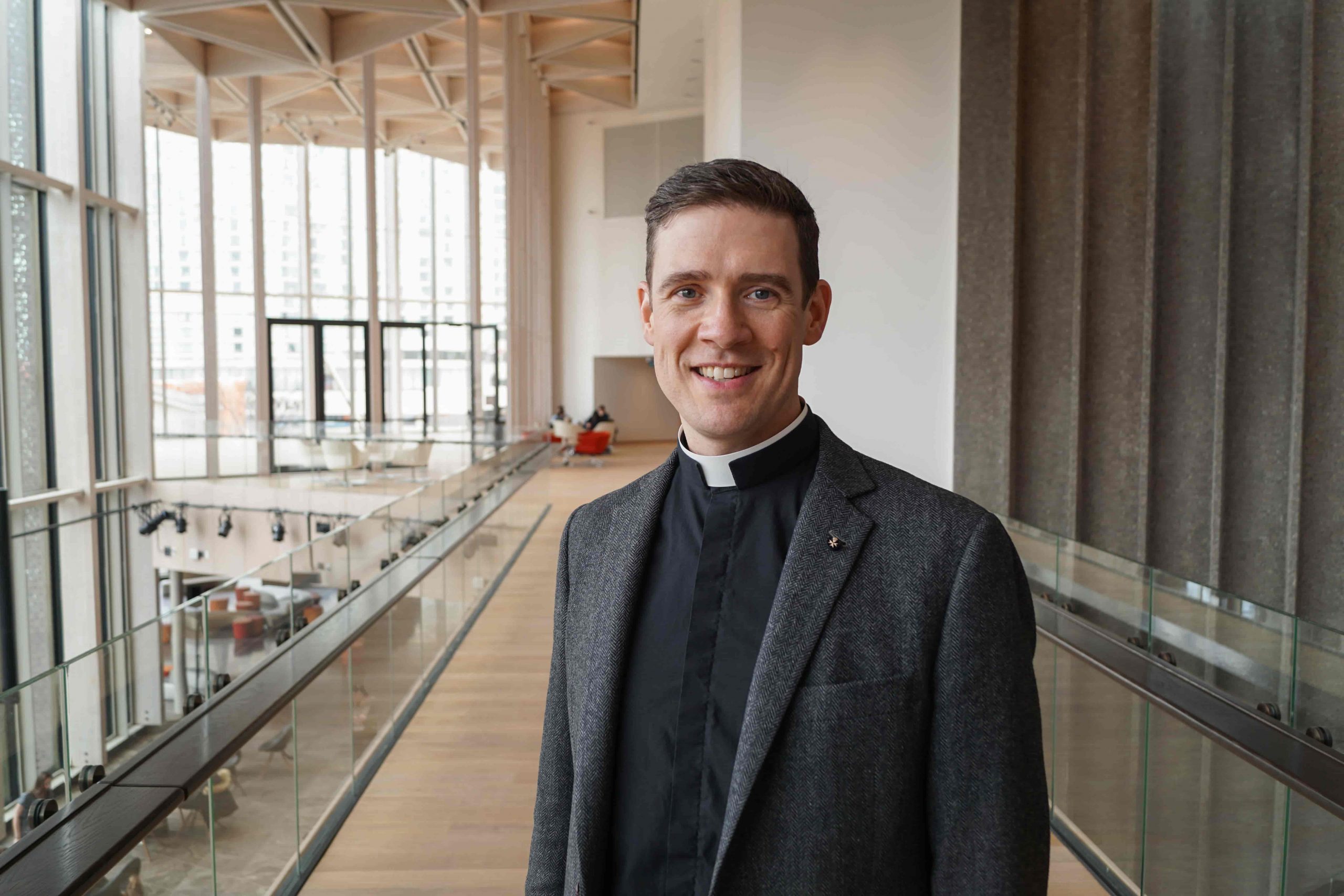Join Milton Friesen, director of our Social Cities research program, for "The Other Side of the City: Urban Institutions That Harm and Help." This discussion is part of the Philosophers' Café Series hosted by the Ronning Centre. Location: Steeps, The Urban Tea House 11116 - 82nd (Whyte) Avenue Edmonton October 4, 2014 from 1:00-3:30 p.m. More on this series here.

Milton Friesen speaking at the University of Alberta
October 4, 2014

Cardus participates in international Christian think tank event
On September 11 and 12, 2014, Cardus participated in a pilot project to launch an international network of Christians in think tanks hosted by the Transatlantic Christian Council. Other organizations involved included the Acton Institute, Alliance Defending Freedom, Renaissance Partnership for Faith and Culture, CitizenLink, and the Colson Center.Ray Pennings hosted a panel discussion with speakers Rocco Buttiglione, philosopher, policitican, and author of a biography of John Paul II, and Os Guinness, social critic and author of The Global Public Square.
September 12, 2014

Launch of 2014 Cardus Education Survey a success
The release of the newest U.S. data from Cardus Education took place at Roosevelt House in New York, New York, September 10, 2014.The event was hosted by the CUNY Institute for Education Policy in New York, New York. Panelists included former New York Education Commissioner David Steiner, CUNY Institute for Education Policy's Ashley Berner, Islamic Schools League's Kathy Jamil, and Sean Corcoran of New York University. For more information on the data, visit www.carduseducationsurvey.com
September 10, 2014

Public Paying Too Much for Major Construction Projects
HAMILTON, September 9, 2014—A report published today by Hamilton-based think tank Cardus says Ontario could free anywhere from $188 million to $283 million a year simply by making small changes to the way it procures major public construction projects. "The reality is that the public is not getting good value or a bang for its buck," said Brian Dijkema, coauthor of the report and director of Work and Economics at Cardus. "When construction projects are tendered in such a way that costs rise 20 to 30 percent, there's clearly something wrong."Currently a section of the Ontario Labour Relations Act has forced major municipalities including Toronto, Hamilton, Sault Ste. Marie, and the Region of Waterloo to be certified as "construction employers," preventing 70 percent of local companies from competing for local construction projects. The paper, Hiding in Plain Sight: The Need for Fairness and Fiscal Responsibility in Construction Procurement, examines the impact of these restrictions. "When Ontario and its cities are in desperate need of infrastructure and short on cash, we should be making sure our dollars go as far as they can," said Dijkema. "It's time we encouraged healthy construction competition that results in greater efficiency, fairness, and savings." The report, co-authored with procurement expert Stephen Bauld, is the latest publication of the Cardus Construction Competitiveness Monitor. Cardus is a think tank for social innovation that builds intellectual capacity, social networks, and policy alternatives to sustain a wide range of cultural entrepreneurs involved in the study and renewal of North American social architecture.The report and previous publications can be found at here. Media Contact: Naomi Biesheuvel nbiesheuvel@cardus.ca
September 9, 2014

Cardus makes the case for school choice
HAMILTON, September 4, 2014 — Fresh North American data and a provocative new research paper from an esteemed Ontario academic clinch the argument for making school choice a key part of educational policy for the public good. "The data suggest that in learning to respect and get along with other people, the graduates of non-public schools are doing better in adult life than the graduates of public schools," Cardus executive vice president Ray Pennings recently told an audience in Calgary. "When we welcome them all and learn from each other, taking the best practices across the board and allowing the marketplace of choice to drive innovation in our education system, we will see improvement for all." His comments came during a public debate with Alberta Liberal MLA Kent Hehr, who is campaigning for an end to all taxpayer funding of non-public schools in the province. Pennings said data from Hamilton-based think tank Cardus shows it's the wrong policy choice. The political and policy implications of the Cardus argument are set out in a research paper, Toward a Warmer Climate for Ontario's Private Schools, by Derek J. Allison, emeritus professor in the education faculty at Western University. Allison reaches back 30 years to the Shapiro commission on private schools in Ontario to buttress the case for education choice being considered a primary public good. Download the paper at go.cardus.ca/warmerclimate. "It is time for Ontario's schools to be brought in from the cold," Allison writes. "Almost three decades have passed since the provincial Commission charged with looking into their future presented its report, but nothing of importance has been done." He notes that, contrary to recommendations in the Shapiro report, punitive fees have been piled onto non-government schools—including those that actually work against students meeting the standards of Ontario’s Secondary School Diploma. Allison’s research says this is part of an entrenched pattern with the province’s education bureaucracy to diminish the role of non-government schools—religious and non-religious—as good alternatives to the public system. He notes that there are only eight government officials overseeing more than 1000 private schools, compared with 73 professional staff in leadership of Ontario’s French Language schools, which enrol fewer students than the private schools. Cardus’ Ray Pennings says such attitudes work directly against the public good of school choice. "We have the numbers, and the numbers show that private schools serve the public good," Pennings says. "Whether in the U.S. or Canada, they make positive contributions to well-educated and engaged future citizens. On September 10 in New York City, Cardus and its colleagues at Notre Dame University will release the third in a series of studies showing the public benefits of both religious and non-religious private schools of social capital formation, academic performance, economic advantage, gender equality, and civic engagement. The latest study, to be showcased at City University of New York (CUNY) and conducted under the auspices of the Cardus Religious Schools Initiative at the University of Notre Dame, indicates:Private religious schools do better at fostering diversity, tolerance, and lasting relationships among students.Students in private religious schools are well prepared for the work force, have strong familial ties and lower divorce rates, and a relative equality between the genders in terms of employability. Religious schools appear to be doing well with civic education producing results comparable to the public schools.The findings further confirm 2011 U.S. research conducted by Cardus, and mirror the think tank’s 2012 Canadian data. Find more information at www.cardus.ca/research/education.
September 4, 2014

Get Rid of Ontario’s Closed Union Shop
Now that the Ontario election is over, Queen’s Park needs to act decisively to find as many means as possible to stem the flow of red ink from Ontario's books. And while there will no doubt be heated discussion about where to find these savings—whether through cuts or attrition—there is one major policy change that is hiding in plain sight that could save anywhere from $190-million to $283-million per year. This policy change wouldn't require new investment. In fact, it requires the government to do almost nothing except bring its procurement practices in line with those of almost every other province and developed country. Actually, it's even simpler than that: Ontario’s government and its major cities can save money just by bringing construction procurement in line with what its own laws, guidelines and practices already require. Despite such requirements, cities such as Toronto, Hamilton, Sault Ste. Marie—and now the Region of Waterloo—take construction-project bids only from a limited pool of contractors who are affiliated with a particular union. In other words, workers and contractors can be shut out of bidding on hundreds of millions of dollars' worth of work because they exercised their basic freedom to associate with someone other than the particular union that holds the monopoly. In 2012, the Hamiton-based Cardus think tank discovered that over $900-million dollars per year was tied up by such monopolies. The unions that benefit from the monopoly suggest that the cost increase is a modest 2%, while other estimates suggest it is an order of magnitude higher. Cardus’s forthcoming paper, Evaluating Closed Tendering in Construction Markets: the Need for Fairness and Fiscal Responsibility, covers a wide range of empirical studies on competition in government construction procurement. These suggest that Ontarians are paying 20% to 30% more for construction projects that are subject to closed tendering. That means that every time a water treatment plant is built in Hamilton, Toronto, Sault Ste. Marie, every time carpentry work gets done in the Region of Waterloo, taxpayers are paying 20% to 30% too much. There is absolutely no justifiable reason for this. As we note in our paper, it is universally acknowledged that public procurement is intended to serve "the good of the general public, as contrasted with the particular individuals or firms involved in a decision." In fact, the importance of competition is so universally accepted as the best way to attain value for the public that Ontario’s law, and all of its procurement guidelines, supposedly require it. Take the Ontario Municipal Act: "Municipalities shall not confer on any person the exclusive right of carrying on any business, trade or occupation." Or, take Ontario’s Broader Public Sector Procurement Directive, which also mandates open, competitive bidding. The reason that directives and laws like these are in place in all OECD countries is that there is a consensus that competition creates the best value for the government, and minimizes the possibility of corruption. As we note in our paper, the structural framework for bidding on major municipal projects in Ontario is analogous to those that, in Quebec, led to the culture of corruption traced in the Charbonneau Commission’s interim report. Premier Kathleen Wynne has set an ambitious goal for her government: to balance Ontario’s budget without making cuts. Allowing Ontario municipalities, school boards, and other public entities to fall in line with what is already mandated by the province will help her accomplish that.
June 20, 2014

Social Cities centre stage
Milton Friesen, Cardus's Social Cities program director, has been in high demand recently. The research program is actively working with or in discussion with the cities of Red Deer, Calgary, Edmonton, Vancouver, Mississauga, Cambridge, and Kitchener/Waterloo. Friesen was at Congress for the New Urbanism in Buffalo this month, speaking at a Zipcode Calling event. He also manned the Social Cities booth at the Federation of Canadian Municipalities annual conference May 30-June 2. And later this month, he will participate in discussions with the Thriving Cities Project at the University of Virginia.The Social Cities research program has published two white papers this year: Is Social Capital Measurement Still Relevant? and Renewing Canadian Public Policy: Can Subsidiarity Provide the Framework? Additionally, Friesen's work has been published on The Hedgehog Review's Common Place blog, at the Stanford Social Innovation Review, and in Comment magazine. In January, Friesen led a webinar with Neighbours Community of Practice on Social Capital as a part of their Thought Leaders circle, and has helped with planning and framing support for The Power of Networks conference in September of this year and Community: Programs and Policies June 23-26. Stay tuned for regular updates on the Social Cities research program's exciting work!
June 18, 2014

Cardus Welcomes Paul Bates and David Sikkink as Senior Fellows
185 Young Street Hamilton, ON L8N 1V9 Tel: 905.528.8866 Fax: 905.528.9433 info@cardus.ca www.cardus.caCARDUS WELCOMES PAUL BATES AND DAVID SIKKINK AS SENIOR FELLOWS HAMILTON, May 27, 2014—Ray Pennings, executive vice-president of Cardus, has announced the appointment of two significant leaders in education and business to the Hamilton-based think tank's Senior Fellows program. Paul K. Bates, of McMaster University in Hamilton, and David Sikkink, of the University of Notre Dame in Indiana, will join the Senior Fellows group effective immediately. "David and Paul are outstanding thought-leaders in their respective fields. Their addition adds immeasurably to the already highly impressive expertise and eclecticism of our Fellows," Pennings said. Cardus Senior Fellows comprise a network of recognized experts in a wide range of disciplines, bringing specialized expertise and capacity to Cardus research projects and events. Cardus provides an institutional framework within which they can write about and speak on key topics within their specialties. Paul Bates is Assistant Professor of Leadership at McMaster Divinity College, following two years as special advisor to the president at McMaster University. Prior to this he was dean of the DeGroote School of Business during the seven-year period when it tripled its number of doctoral candidates and doubled the enrolment in its MBA program. Prior to his academic career, he established himself as a major figure in the Bay Street business world, including presidencies of four major investment and brokerage firms. "Paul Bates brings business and academic experience to the table and has thought deeply regarding questions of vocation and leadership. Shaping a society in which labour is understood, valued, and appropriately rewarded is among our contemporary challenges; Paul's expertise will help inform Cardus in addressing this," Pennings said. At Notre Dame, David Sikkink is an associate professor in the sociology department and has been deeply engaged with the Cardus Education Survey. He now serves as the director of the Cardus Religious Schools Initiative. His Ph.D. dissertation at the University of North Carolina-Chapel Hill examined the shaping effect of religion and community on education, leading to a career interest in the relationship between faith and schooling. He has also published in scholarly journals articles on faith and political protest as well as on the American Christian Right. "Through our partnership with the University of Notre Dame and the education research projects we have completed together, Cardus has come to appreciate David's breadth of expertise regarding youth and religion in North America today," Pennings said. "We look forward to incorporating that expertise into our Senior Fellows symposiums to shape our strategies regarding renewing North America's social architecture." Cardus is a think-tank based in Hamilton, Ontario, which focuses on the renewal of social architecture in North America. For further information on the Cardus Senior Fellows Program and the Senior Fellows themselves, visit www.cardus.ca/fellows. To arrange an interview with David Sikkink, Paul K. Bates or other Senior Fellows, please contact Naomi Biesheuvel at nbiesheuvel@cardus.ca or call 905-528-8866 x31.-30-
May 27, 2014

Comment Photo Contest Winners
Thank you to all those who entered our Comment magazine Social Cities photo contest! The excellence and variety in entries made it a tough job for our esteemed judges. The Comment team managed to select a group of finalists, and then we passed that batch along to the judging panel: Robin Rayne Nelson, Mark Volkers, Milton Friesen, Courtney Cheatham, and Alex Houghton.Congratulations to our first place winner, Kevin van der Leek of Surrey, BC. Second place goes to Mike Lane of Saanichton, BC, and Neil E. Das of St. Louis, MO, and John van Sloten of Calgary, AB, have tied for third place. Runners-up include Michael Burkhalter of Bellevue, WA, Sheona Beaumont of Bristol, UK, and Phil Reinders of Toronto, ON. To see which photos came in first, second, and third in full colour, check out the next issue of Comment, and if you'd like to access the full-sized versions of our winning entries, sign up for the iPad edition!
May 22, 2014



